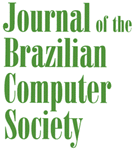This paper presents a non-conventional approach for the automatic music genre classification problem. The proposed approach uses multiple feature vectors and a pattern recognition ensemble approach, according to space and time decomposition schemes. Despite being music genre classification a multi-class problem, we accomplish the task using a set of binary classifiers, whose results are merged in order to produce the final music genre label (space decomposition). Music segments are also decomposed according to time segments obtained from the beginning, middle and end parts of the original music signal (time-decomposition). The final classification is obtained from the set of individual results, according to a combination procedure. Classical machine learning algorithms such as Naïve-Bayes, Decision Trees, k Nearest-Neighbors, Support Vector Machines and MultiLayer Perceptron Neural Nets are employed. Experiments were carried out on a novel dataset called Latin Music Database, which contains 3,160 music pieces categorized in 10 musical genres. Experimental results show that the proposed ensemble approach produces better results than the ones obtained from global and individual segment classifiers in most cases. Some experiments related to feature selection were also conducted, using the genetic algorithm paradigm. They show that the most important features for the classification task vary according to their origin in the music signal.
music genre classification; machine learning; pattern classification; feature selection















